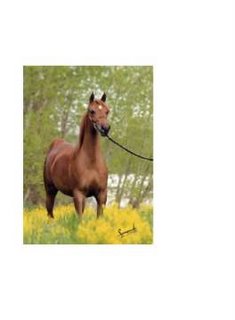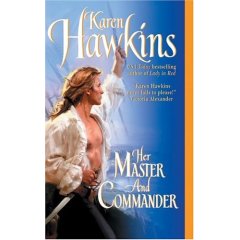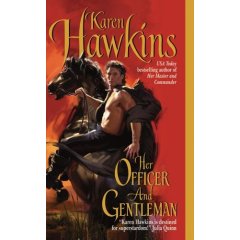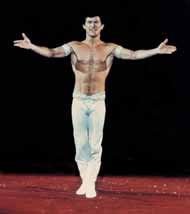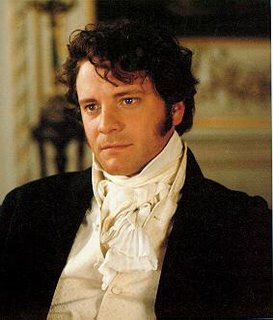I talk a lot about my kids. They are an intriguing bunch, at least to me. My eldest daughter is what we might call an "old soul". Very, very smart (an A student, well except for that B in P. E.), and very, very articulate.
She hates Sixth Grade English. Hates it.
Oh, how this pains me.
She is stuck in one of those didactic hells we all find ourselves in from time to time; her teacher has a specific way of teaching her class and she will not be flexible in any way.
The textbook with reading samples and discussion questions is NOT to be read during free reading period. Grammar will be taught from pre-approved worksheets, NOT using examples drawn from the sample text. (Therefore my daughter has no clue how to USE any of the grammar she's learned.) After reading the assigned short book at home, the class will, after being called on individually, re-read the entire book aloud. All students will pay attention. Reading for enjoyment or reading ahead is strictly discouraged at all times.
So right now, the class is reading
I Know Where the Red Fern Grows, which my daughter finished well before Halloween. Every day she goes to class (it's now mid-November) and listens as her classmates plod through it, paragraph by paragraph, rereading it out loud. She's not allowed to draw while she listens, she's not allowed to take notes while she listens: essentially, she's learning to hate this book.
I'm dying with her.
I LOVED my English classes. OK, I was for the most part blessed with excellent English teachers. But, you know, even I had to do mildly boring things. At one point in Sixth Grade we had to memorize a list of prepositions in alphabetical order. I remember it started with "Aboard, about, above, across..." and then I forget the rest. But that aside, we read some great stuff in Sixth Grade:
Ethan Frome by Edith Wharton (Which I hated until I got to the end. Eww. Freaky.)
"A Rose for Emily" by William Faulkner (Eww. Freaky.)
To Kill a Mockingird by Harper Lee (Which still makes me cry.)
"The Story of an Hour" by Kate Chopin (Which I adore.)
"The Yellow Wallpaper" by Charlotte Perkins Gilman (Which to this day still gives me nightmares.)
The Old Man and the Sea by Ernest Hemingway (The first of five class readings for this. I never grew to like it.)
"Where Are You Going, Where Have You Been?" by Joyce Carol Oates (Devil?)
"The Dead" by James Joyce (which I didn't like at all until I read the entire
Dubliners.)
"The A & P" by John Updike (Which I still don't like.)
So here's the thing, some of those I didn't really enjoy, but I learned how to appreciate the art within them. The ones I loved, well, I still love them. And beyond the idea that we have to read only the things that we lurve, I learned how to search for symbols, themes, foreshadowing, unreliable narrators, points of view, details, and controversies. I learned how to compare them, how to write about them, how to build a character sketch from the text, and how to dissect a text to support my point of view. And I did all that well before High School or even college.
I remember LOVING to search for symbols. Oh! A window! What could THAT mean? Oh! A flower! Innocence? Death? Romance? Which is it? And sometimes in my adolescent enthusiasm, I would go way too far, wringing meaning out of every description, trying to turn every scene into some greater allegory. (If Flowers Mean Something, then the vase must mean something, and the table, and the hallway, and the door at the end.) It took a bit of work by my Ninth Grade teacher to convince me to tone it down a touch. But hey, I was engaged. I was excited. I was eager to not only read, but to re-read, and to re-read again, trying to work out the structure of the story, the motive of the narrator.
My daughter's learning how to be a passive reader and how to build a diorama based only on the characters in the book. Oh, there's a good skill to have. Because so diorama-building is so ubiquitous in adult life. Wouldn't want to build up critical thinking skills, or, god forbid, writing skills.
So, this weekend, I started my daughter on a home course of Litera-toor.
I downloaded from the web four short stories: "The Gift of the Magi" by O. Henry, "A Rose for Emily" by William Faulkner, "A Good Man is Hard to Find" by Flannery O'Connor, and "The Story of an Hour" by Kate Chopin.
I wrote out some questions for her: Is there a moral to this story? When did you first suspect that this story wouldn't end the way you anticipated? Who is the narrator? Does the narrator like the characters? Does the author like the characters? Tell me about a theme, or a series of images in the story that you think the author included for some reason.
She read the stories, and we sat together to talk about the questions. I didn't ask her to write anything (yet).
And we genuinely enjoyed ourselves. Shocking, I know. Because, according to the educators, this shouldn't be at all fun. Every drop of enjoyment or discussion should be wrung from young students' minds.
Here are some of my daughter's interpretations:
The heroine in "The Gift of the Magi" is an idiot. She cries and sobs too much. Jim's OK, but he's kind of flat. And the last paragraph is very confusing. We think there's a moral, but O. Henry's writing is so dense at the end that it's hard to get to his meaning.
"A Rose for Emily" is creepy but beautiful. You need to read it about four times to get a sense of what happens when. A time line could help. The scariest line in the story is when Homer is described as being "in the attitude of an embrace." Ew.
"A Good Man is Hard to Find" is funny, but it's disturbing that it's funny. We shouldn't be laughing at the grandmother. The title means a lot of different things, depending on who's saying it.
"The Story of an Hour" is just so sad. The twist is meant to be ironic and show us something about the way men treat women, but really, it's just so sad. Too sad to even talk about even.
There now, that wasn't so hard. I find it hysterical that she has so little patience for Della, the heroine in "The Gift of the Magi." My daughter don't like no sniffling women. And I didn't expect her to be so troubled by "The Story of an Hour."
So we've decided that we're going to do this every week. I'm going to try to pull together ones which link together in some way. I'm thinking of doing angels and devils next. "Where Are You Going, Where Have You Been?" is an obvious one, and maybe "The Minister's Black Veil", and I'm trying to remember the name of the Mark Twain story about the little boy who breathes life into little mud people and then stomps on them--after all, they're his creations to do with what he will. I'd also like her to read some Ring Lardner, and Guy de Maupassant, and Edgar Allen Poe, and Saki, and everybody else I can think of.
Why are we so dedicated to wringing the life out of books? Why are we so dedicated to believing that a work such as Romeo and Juliet (which I read in Seventh Grade) is only a High School text because it was written by, shhhhhh, silence please,
Shakespeare? Why do we do this to kids? Why do we refuse to teach them how to write? Why do we refuse to teach them how to read for context and subtle meanings? It's as if only knowing the plot is good enough.
Why do we teach the good readers, the smart readers, the articulate readers, how to hate reading?



